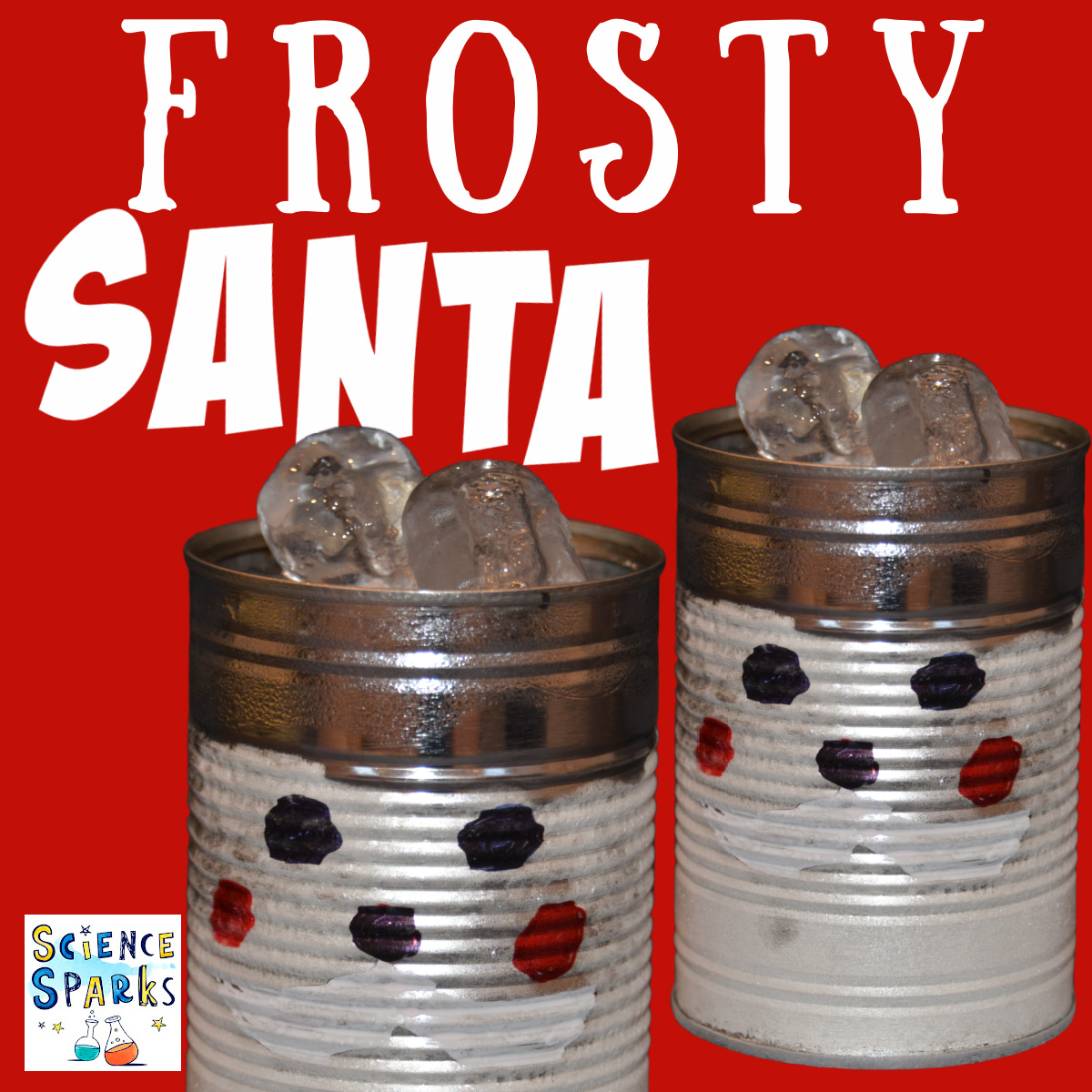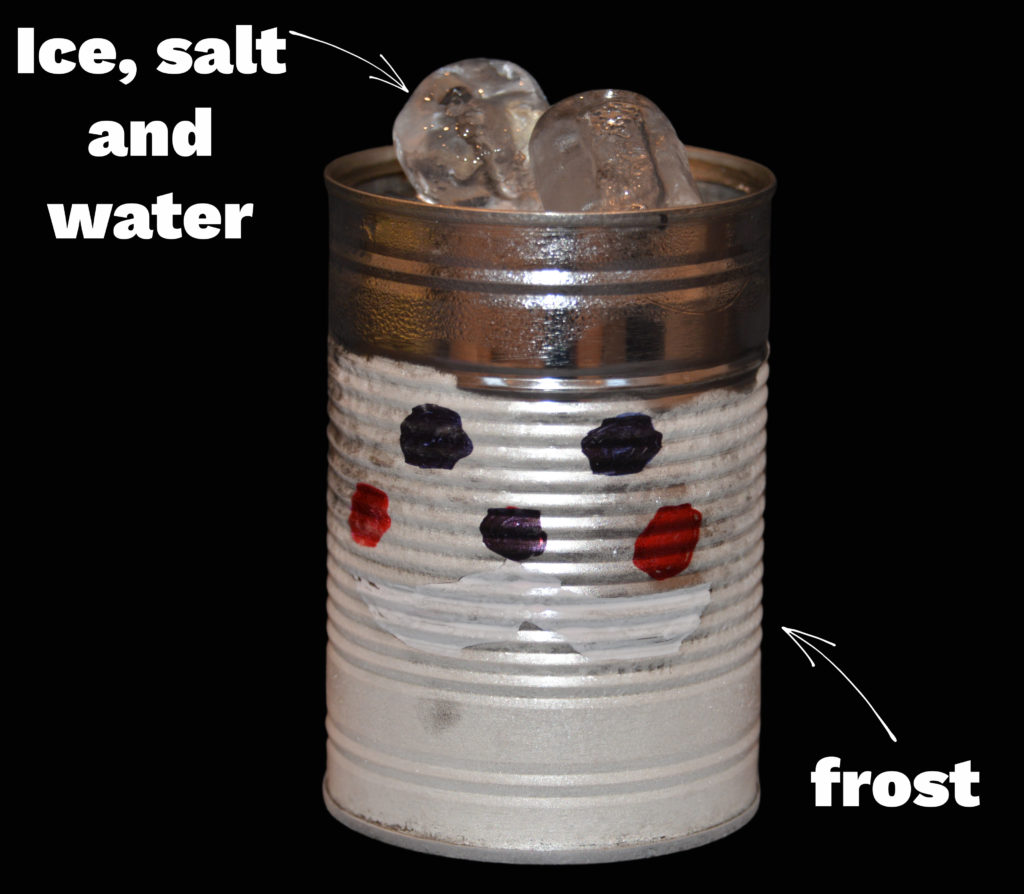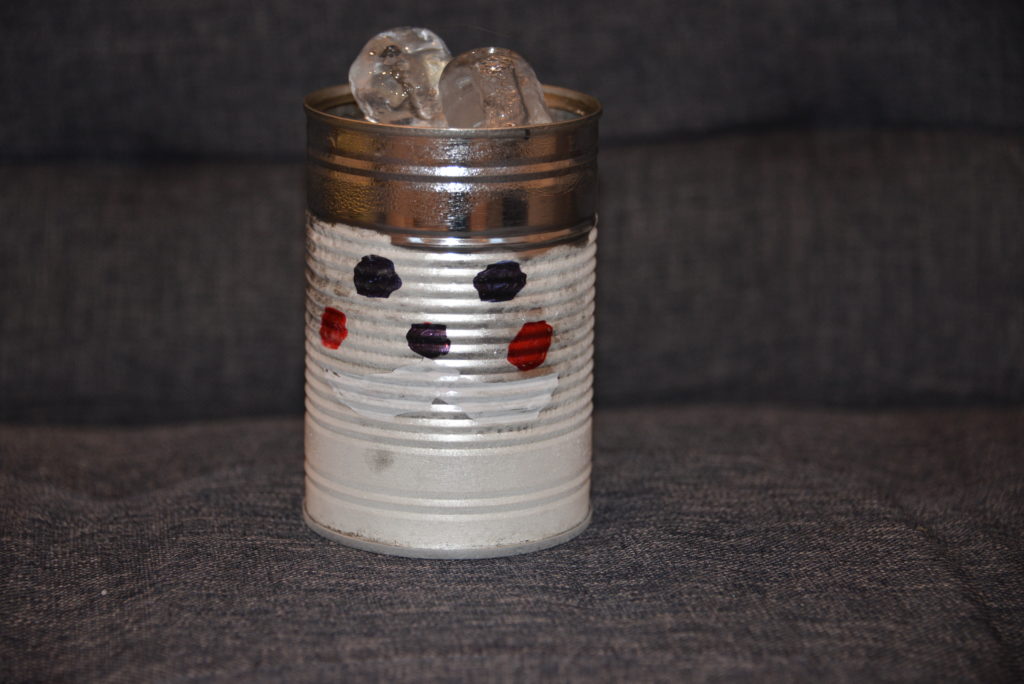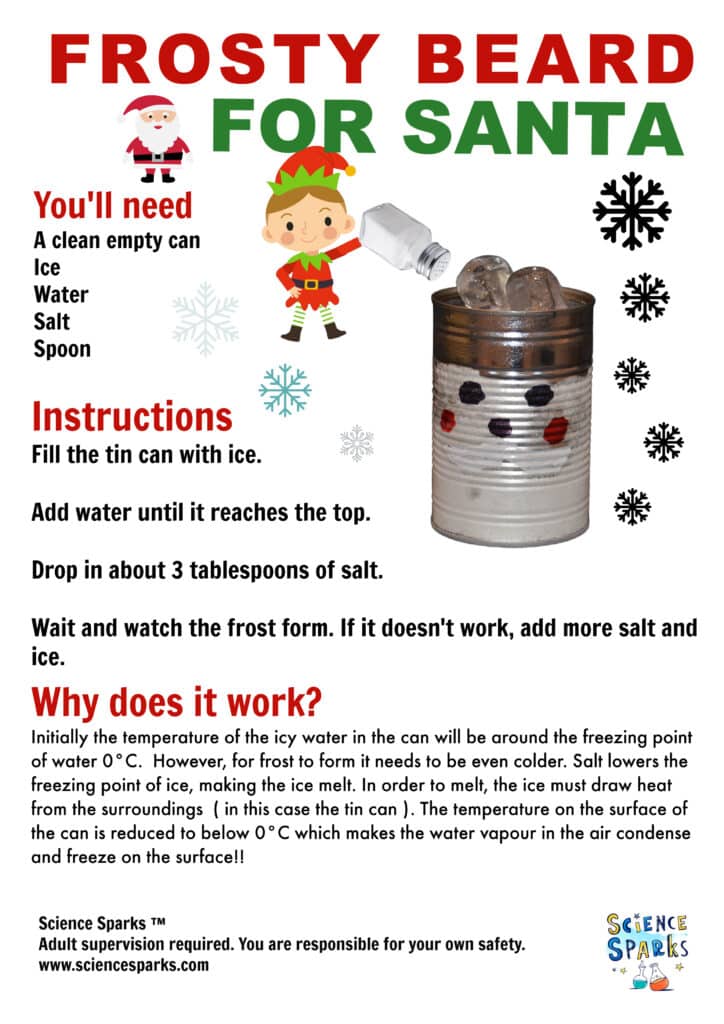Last year, we made an icy snowman using ice, salt and water. This year, it’s Santa’s turn. Draw a Santa face on the outside of a tin can, add ice, salt and water and watch as a frosty beard appears.
You can use the same salt and water science to cool a drink quickly and make ice cream in a bag!

Frosty Beard for Santa
You’ll need
A clean, empty tin can
Coloured pens to decorate
Ice
Salt
Water

How to make a frosty Santa
Decorate the can to look like Santa. We used a mixture of sharpies and chalk pens.
Fill the can with small pieces of ice.
Add a little water
Pour in about three tablespoons of salt
Watch as the frost forms
If it doesn’t work, keep adding ice and salt. The frost should form within 10 minutes and be solid enough to touch the outside of the can.

Why does frost form on the outside of the can?
The icy water temperature is about 0°C, but for frost to form, the icy mixture needs to be much colder, which is why we add salt.
Salt lowers the freezing point of ice, which means at0°C, the ice starts to melt as its freezing point is lower than zero. To do this, the ice draws heat from the surroundings ( the surface of the tin can ), causing water vapour in the air to condense and freeze on the outside of the can.

More Festive Science for Kids
If you enjoyed this activity, you’ll love my ULTIMATE list of Christmas Science Experiments, which contains Santa STEM challenges, a FREE pack of paper science experiments, reindeer lava lamps, and lots more!
Don’t forget to download my FREE pack of elf activities, too!
Last Updated on November 20, 2024 by Emma Vanstone


